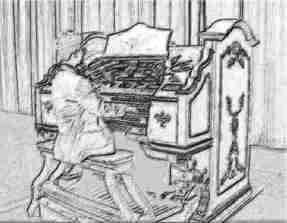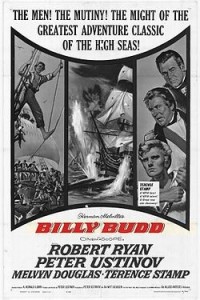 For many years Noreen Hennessy was quite the character in Sydney, where she worked as the resident organist at the Prince Edward Theatre. Now, I was surprised to discover that theatres and cinemas (and the Prince Edward doubled as both things) had resident organists long after the transition from silent films to talkies – but they did, and they were often very famous and popular.
For many years Noreen Hennessy was quite the character in Sydney, where she worked as the resident organist at the Prince Edward Theatre. Now, I was surprised to discover that theatres and cinemas (and the Prince Edward doubled as both things) had resident organists long after the transition from silent films to talkies – but they did, and they were often very famous and popular.
Miss Hennessy was one such performer: whether as a number of a variety show, or between acts of a play or at the end of a movie, she appeared at her spotlit Wurlitzer wearing a pastel-coloured, ankle-length tulle dress, and played one or two songs for the general delight. Then she would receive her applause, smile, curtsey, and leave. She held the post for many years, and was quite popular.
Well, in 1962, the Prince Edward hosted the Australian première of Peter Ustinov’s Billy Budd. It was both a very elegant soirée and a fundraising event for I don’t know what charity, a white-tie affair gathering actors, director, authorities, the posh Sydney and the artistic Sydney…
And we all know how Billy Budd ends, don’t we? It ends in such a way that, when Noreen tiptoed to her organ towards the end of the movie, and made ready for the spotlight, a thousand and fourteen hundred patrons were tearing and sobbing over poor Billy’s fate. 
“Poor lambs, bless their tender hearts!” must have thought Noreen to herself. “I know what will raise their spirits…” So she stole a glance at the screen, vaguely perceived “Navy” and, with no forewarning, started playing Anchors Aweigh with all her might – just as poor Billy… er, swung.
The audience was more than a little startled at the wild change of mood. The spotlight hiccuped to life, and a thousand five-hundred pairs of saucer-sized eyes turned on the organist. Anchors Aweigh, especially in its instrumental version, is not what you’d call a lengthy song: when it finished, there was a beat of silence, and then the audience burst laughing and cheering as one man. I don’t think Ustinov, the Allied Artists people and Melville’s ghost were overwhelmingly pleased, but Noreen stood, curtsied, enjoyed a standing ovation longer than the song had been, and retreated beaming like the sun and very happy.
Perhaps it hadn’t been the sort of première Ustinov had expected and imagined – but there is no denying that it was quite unique.

I worked for miss hennessy for a while and found she was a bit of a character.
LikeLike
Did you really? How fascinating! You must have some lovely stories to tell about her…
LikeLike
It was in the capacity of a home care help in her later years when her health wasn’t the best. Sadly i have forgotten a lot of her stories, but she often talked about those days at the organ and how she felt playing for the theatre patrons. She totally enjoyed playing.
At the time she lived in a small garden flat in a back yard. She had a couple of cousins who used to visit her. She said that these cousins were nuns and the priest used to visit her also.
She was a smoker in a closed up flat and i always had to open doors and windows to air it out when the cousins were coming.
I would always comment that they would smell it anyway and she would give a chuckle and a twinkle in her eyes and say that she was sure they knew but she was making out that she was a miss goody two shoes anyway.
She had a very raucus laugh.
She used to listen to talk back radio at night and heard someone ask if anyone knew what had happened to noreen hennessy. She phoned the radio station and told them she was alive and delighted to know that people still wondered about her.
I am really sorry that i have forgotten most of her stories, it was in the early 1980’s that i knew her. If ever i remember them i will post them on this.
LikeLiked by 1 person
I used to work in a nursing home where Miss Hennessy resided in Manly for many years. During the time I knew her she was always a friendly lady with a keen sense of humour. She was unable to walk at this stage & spent her days in the common lounge room of the nursing home where smoking was allowed. (This was around 1990 when I first started working there & she had been a resident there for some years before that) She was a chain smoker at this stage, lighting one cigarette straight off the other & the walls were soaked in nicotine! My memory is a bit hazy now but some time before 1994 she moved to another facility, as laws were bought in that she could not longer smoke inside. She resided on the top floor & in those days there was no way of her getting down stairs to smoke outside as she was confined to a wheelchair. I remember her being most upset about the new laws & she was very unhappy about having to find a new care facility. I was sad along with other staff members to see her go.
LikeLike
Oh, how sad… Yes – I don’t suppose all that cigarette smoke could be good for the other guests – and for herself – but still it sounds very sad to deprive an old lady of what may be one of the last pleasures she still has in life, and even so that she must relocate on that account… Thank you for sharing, Wendy!
LikeLike
Oh, wonderful! She sounds delightfully quirky… thank you for sharing, Beth – and if you do remember, please tell us more! 🙂
LikeLiked by 1 person